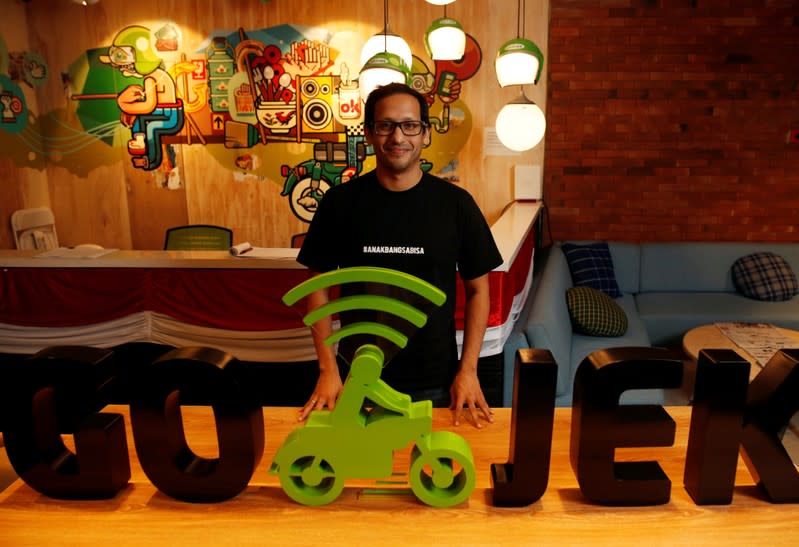Gojek CEO Makarim quits, says will join Indonesia's cabinet

JAKARTA (Reuters) - Gojek CEO and co-founder Nadiem Makarim said on Monday he had resigned from the ride-hailing and payments company to join the cabinet of Indonesian President Joko Widodo, raising questions over who will take over leadership of the $10 billion unicorn.
"I have received a big honour to be able to join the cabinet," Makarim told reporters at the presidential palace in Jakarta. He said his specific role would be announced by the president later in the week.
Makarim said he and Widodo had spoken about "directions to develop Indonesia in the future" including in "human capital, bureaucratic reform, and investment."
Indonesia media have linked the 35-year old Makarim, the face of Gojek, to a possible cabinet post in a new digital economy ministry or in education.
Gojek did not immediately respond to requests for comment on who Makarim's successor as CEO will be. Gojek's other co-founder, Kevin Aluwi, remains at the company where he heads the data and analytics teams.
The Indonesian company, valued at $10 billion, raised over $1 billion earlier this year from backers including Alphabet's Google and Chinese tech giants Tencent and JD.
Evolving from a ride-hailing service founded in 2010 to a one-stop app via which users can make online payments and order food and services such as massages, Gojek is now targeting a larger slice of the Southeast Asian market, where Singapore-based rival Grab currently dominates ride-sharing.
Gojek is one of Indonesia's five unicorns - companies that have reached $1 billion in valuation without tapping the stock markets.
The others are travel site Traveloka, market places Bukalapak and Tokopedia, and Grab-backed fintech firm OVO, which competes with Gojek's own payments platform Gopay for the top spot in Indonesia's multi-billion dollar online payments market.
However, while the country is one of the world's fastest largest growing internet economies, its technology firms face an acute skills shortage that Widodo has pledged to bridge.
(Reporting by Fanny Potkin; Editing by Tom Hogue, Raju Gopalakrishnan)

 Yahoo News
Yahoo News 